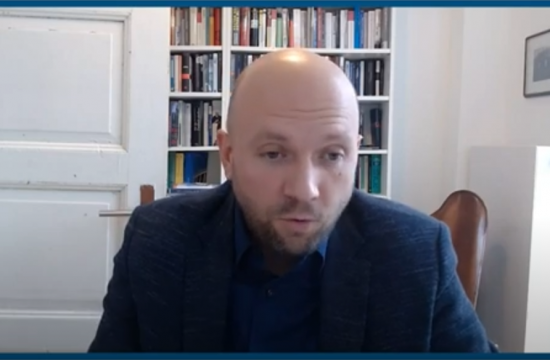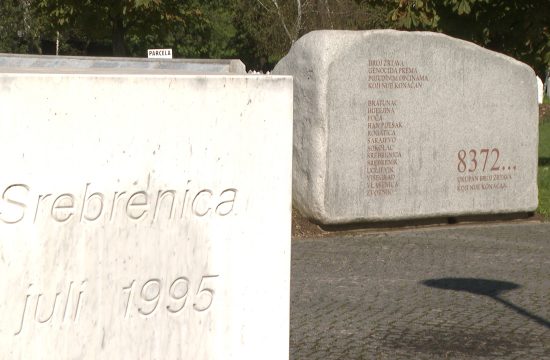
The parliament of the Bosnian Serb half of the country is discussing whether it will support claims made by the Bosnian Serb member of Bosnia’s tripartite presidency that Bosnia’s possible lawsuit against neighbouring Croatia over the construction of a bridge is detrimental to Bosnian Serb interests.
The bridge is meant to connect the Croatian mainland and the Peljesac Peninsula, bypassing a 15 kilometre-long Bosnian strip around the city of Neum that is located in the bay of the peninsula.
Bosniak political parties oppose the construction of the bridge, saying it might prevent large vessels from entering the country’s bay of Neum and threaten its access to the open sea.
When the Bosniak and Croat members of the country’s presidency agreed to adopt a proposal that could lead to Bosnia suing Croatia over the issue, the Serb Presidency member, Milorad Dodik, said he would not approve the move.
He said he would use the vital entity interest card which would mean that the RS parliament could block the lawsuit if it supports his objections.
Dodik is the leader of the ruling party in the RS.
He argued that the RS is not in favour of “partial solutions” for solving issues with neighbours, “especially when it comes to the state border,” regardless of whether it is a border on the land or the sea.
“Selecting only the issue of the construction of the bridge Komarna-Peljesac, which is located on the territory of the Republic of Croatia, and disregarding other issues such as the Kostajnica border as well as issues regarding the border with the Republic of Serbia and other issues, does not contribute to the development of good neighbourly relations and damages Bosnia and Herzegovina and its entities,” Dodik wrote.
He wrote that the conclusion the Presidency members adopted asks for the halting of an EU-funded project which is being built by the China Road and Bridge Corporation and that such a move represents behaviour “which damages the reputation of Bosnia and Herzegovina and its interests.”
If Bosnia’s interest was considered to be threatened regarding the Peljesac Bridge, it would have been necessary to act before the construction began and not when the bridge has already reached the second phase of construction.
Republika Srpska behaves responsibly and is not trying to block projects and cause damage to neighboring countries, contractors and financiers without any valid reason, Dodik argued.
He argued that the conclusion was adopted by his two colleagues on the same day when an agreement for the construction of a bridge on the Sava river near Gradiska was signed with Croatia, and that this “indicates that the damage that is to be produced is not only damage to Croatia, but indirectly aims to jeopardise the bridge project on Sava near Gradiska, which is of vital interest to RS.”
He then called upon RS lawmakers to support his assessment and confirm it within ten days, so that the adopted conclusion does not enter into force.







